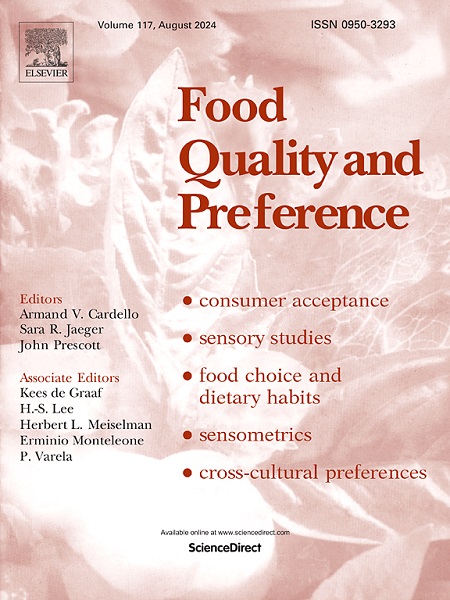What do consumers prioritise when selecting climate-affected produce and what trumps empathy towards farmers?
IF 4.9
1区 农林科学
Q1 FOOD SCIENCE & TECHNOLOGY
引用次数: 0
Abstract
Despite the prevalence of extreme weather events (e.g., droughts), little is known about factors that would prompt consumer to choose climate-affected (suboptimal) produce over climate-unaffected (“normal”) food, and how much they would pay for it. This study has examined if empathy towards farmers: 1) outweighs the importance of the intrinsic attributes typically affected by extreme weather events (aesthetic look, taste, firmness, and size), and 2) enhances the effectiveness of extrinsic attributes controlled by marketers (price, retail setting, resilience marketing message). Two discrete choice experiments were carried out – one with a sample of Australian students (Study 1, N = 358) and another one with a wider Australian population (Study 2, N = 548). Both studies consistently showed under which conditions intrinsic attributes trumped empathy and which extrinsic attributes, combined with empathy, influenced consumers to choose climate-affected food. This work discusses a number of strategies to promote currently discarded, but still edible, climate-affected produce to reduce food waste and minimise farmers' income loss in times of climate change.
求助全文
约1分钟内获得全文
求助全文
来源期刊

Food Quality and Preference
工程技术-食品科技
CiteScore
10.40
自引率
15.10%
发文量
263
审稿时长
38 days
期刊介绍:
Food Quality and Preference is a journal devoted to sensory, consumer and behavioural research in food and non-food products. It publishes original research, critical reviews, and short communications in sensory and consumer science, and sensometrics. In addition, the journal publishes special invited issues on important timely topics and from relevant conferences. These are aimed at bridging the gap between research and application, bringing together authors and readers in consumer and market research, sensory science, sensometrics and sensory evaluation, nutrition and food choice, as well as food research, product development and sensory quality assurance. Submissions to Food Quality and Preference are limited to papers that include some form of human measurement; papers that are limited to physical/chemical measures or the routine application of sensory, consumer or econometric analysis will not be considered unless they specifically make a novel scientific contribution in line with the journal''s coverage as outlined below.
 求助内容:
求助内容: 应助结果提醒方式:
应助结果提醒方式:


